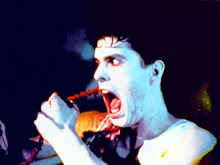
Directed by: Ernest Thompson
Written by: Ernest Thompson
Starring: Robert Downey Jr., Kiefer Sutherland, Bruce Dern, Mariette Hartley, Winona Ryder, Joanna Cassidy
Kiefer Sutherland plays Scott, a naïve and idealistic 19-year-old who attends college with his best friend Ralph (Downey Jr.) to avoid being drafted into the army and shipped out to Vietnam, the fate that has befallen his older brother. The film focuses on the boy's experiences during their last summer of innocence, but nothing much really happens. They go to San Francisco, sit in a bar, then come straight home again. Ralph has a bad LSD trip, while Scott falls in love with Ralph's younger sister (Ryder,) and grows increasingly adrift from his war-hero father (Dern) over the war in Vietnam. Even though the film takes place in 1969, nothing of that era is successfully captured here, and the presence of three young stars of the 80's doesn't help either.
Watching it, you sit there waiting for something meaningful to happen, something interesting that might make you give a damn about the people involved. You wait and you wait, and finally, five minutes from the end credits, the film pulls an 'inspiring' and 'uplifting' scene that is truly horrible to watch. I really mean that – it's horrible. I couldn't believe it was actually happening, or that a screenwriter of any merit would expect us to believe that the characters' deeply ingrained convictions about a subject as complex as that which he has tried to tackle could be swept aside so superficially.

Final Verdict: Skip It












